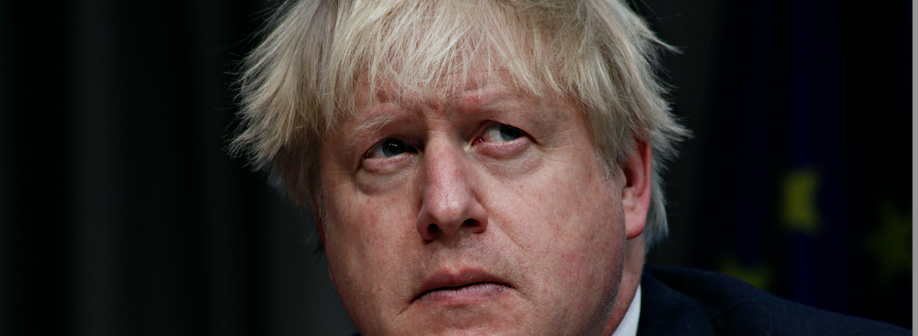| 6 mins read
The core purpose of the Privileges Committee investigation of Boris Johnson has been to determine the extent to which the House of Commons may have been misled over his behaviour during his tenure as Prime Minister vis-à-vis lockdown parties in Number Ten.
Boris Johnson’s evidence
The marathon session of evidence provided by Johnson on 22 March 2023 fed into an overall perception that he was adopting a confrontational approach to the proceedings. In his responses to questioning, Johnson employed his trademark rhetorically ‘amateurish’ style - that is, predicated upon deflection - alongside a sense that he was addressing a secondary audience beyond those in the room with him.
The opening statement constructed by Johnson and his legal team was intended to showcase an awareness of the mistakes that had been made in Downing Street during the pandemic, the significance of which he had seemingly underestimated at the time. It reflected the core characteristics of an individual who seemed unable to comprehend the consequences of the actions being investigated by the committee. As a means of defence, Johnson endeavoured to demonstrate his own experience with Covid: he had been hospitalised with the virus, hence he understood how serious it was to comply with the rules and how implausible it was that he would intentionally mislead the Commons.
But Johnson’s innocent actor persona would soon be deconstructed as his defence was methodically scrutinised by (former) friends and (longstanding) foes on the committee. Claims that his statements to the Commons were ‘made in good faith’ were met with fierce scepticism by his former supporter Sir Bernard Jenkin, whilst Labour MP Yvonne Fovargue questioned Johnson on his awareness of an email sent out to 200 staff members to ‘bring their own booze’ to the garden party of 20 May 2020. Johnson’s abrupt ‘no’ to this query gave the committee cause to reflect back on his previous defence that he felt it was appropriate to thank hardworking staff members during the pandemic. But this defence too was soon deconstructed, with numerous officials having claimed that anxieties were raised around the ‘optics’ the event.
The Privileges Committee
The Commons Privileges Committee is a body that should not be underestimated, given its capacity to enact career-ending sanctions. Johnson should have recognised that how he chose to engage with the committee and whether he demonstrated seriousness and contrition would affect his capacity to emerge from it in a credible position.
Supporters of Johnson have sought to portray the committee as a political rather than constitutional body which was simply seeking to punish Johnson for Brexit and attempting to undermine any political future he might have. This is despite the fact that it was designed to reflect the representative structure of the Commons, thereby giving the Conservatives a majority. These suggestions are kept alive in part because the chair was Labour MP Harriet Harman - a woman who is both a well-respected figure in the Commons and a vocal critic of Boris Johnson.
The Privileges Committee verdict
The judgement of the Privileges Committee was eventually made public on 15 June 2023. The committee found Johnson in contempt of Parliament, removing any doubt that the former Prime Minister was an innocent bystander in the Partygate scandal. Furthermore, he was found to be ‘complicit in the campaign of abuse and attempted intimidation’ of the committee itself.
Ironically, Johnson was once able to present himself as a victorious celebrity politician who won the hearts and minds of people through inspirational rhetorical tropes. However, the findings of the committee revealed a deep-rooted set of characteristics that now make him incapable of soliciting trust in an audience.
Defenders of Johnson will seek to embed the “kangaroo court” narrative as a way of suggesting the proceedings were personally or political motivated. Some of Johnson’s supporters turned their ire towards the Conservative Party, suggesting there was an anti-Johnson faction: Nadine Dorries argued that any Conservative MP who voted to verify the findings was ‘fundamentally not a Conservative’, and that such members could face deselection. Despite these protestations, opinion polling data from YouGov revealed the majority of voters felt the punishment was ‘not harsh enough’, that the committee ‘did give him a fair hearing’ and finally, that ‘he did’ intentionally mislead Parliament.
Boris Johnson’s performance in front of the Privileges Committee was firmly defensive, whilst simultaneously being an attempt to undermine its proceedings and credibility. This strategy failed because he did not recognise the remit of the committee or its importance. Whilst this may bring comfort to the majority of the population who obeyed the laws during the Covid lockdowns, it presents Johnson as a dishonest actor from whom the Conservatives should move on if they are to have any hope of avoiding electoral wipe-out at the next general election.
Need help using Wiley? Click here for help using Wiley








